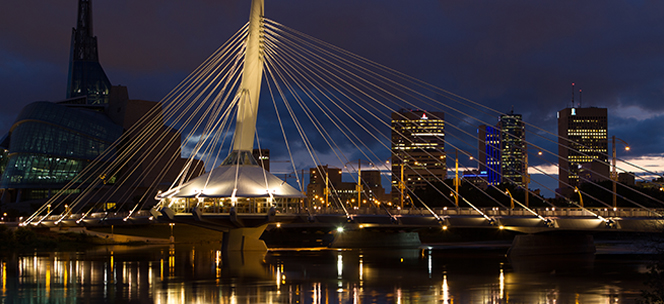Kinew should push for end to industrial carbon tax

Premier Wab Kinew was right to stand against the federal consumer carbon tax.
Now he needs to take the next step and call for an end to the federal industrial carbon tax. Because it’s likely to become a lot more expensive.
That’s because Prime Minister Mark Carney has promised to keep the industrial carbon tax and “improve and tighten” it.
Before the federal government set the consumer carbon tax to zero, Kinew said that Manitoba doesn’t “need that carbon tax here.”
“Give Manitobans a break,” he said. And Manitobans got that break.
On April 1, the feds cut the carbon tax to zero and drivers in Manitoba immediately started saving 17 cents per litre on gas, 21 cents per litre on diesel and 15 cents per cubic metre on natural gas.
Those are big savings, but Manitoba is not carbon tax free because Manitobans are still stuck paying the cost of Ottawa’s hidden industrial carbon tax.
Despite not directly seeing the cost of the industrial carbon tax on your bills, it still makes everything more expensive.
When Ottawa forces businesses to pay the tax, they have no choice but to pass on those costs on to taxpayers when they heat or their homes or buy potatoes at the grocery store. It also makes it more expensive for farmers in Manitoba to buy fertilizer.
Some of Manitoba’s biggest companies that make those products are stuck paying the industrial carbon tax. This includes a fertilizer plant in Brandon, a potato processing plant in Portage la Prairie and natural gas pipelines that cross the province.
Recent polling shows that Manitobans know this too. Leger polling shows that 68 per cent of those polled in Manitoba/Saskatchewan believe that businesses pass on most or some of the cost of the industrial carbon tax to consumers. Only nine per cent believe that businesses pay most of the cost.
This also impacts jobs for Manitobans. When business owners decide where to invest in their companies, the amount of carbon tax they must pay is certainly going to be on their mind. If the cost rises too much and the business shifts production south, that means fewer jobs.
The fertilizer plant in Brandon employs almost 300 people directly, more than 300 work at the potato processing plan and the natural gas pipeline industry also employs many Manitobans.
If these companies cut production or leave because of the industrial carbon tax, it’s regular Manitobans who are hurt the most. And it’s not just for those who are employed directly at these places, but Manitobans who work in industries that rely on these facilities could face job losses as well.
Before Parliament resumes and Carney begins changing the industrial carbon tax, Kinew needs to make his voice heard for Manitobans.
The industrial carbon tax currently costs businesses $95 per tonne of emissions. It is set to increase to $170 per tonne by 2030, Carney has said he would extend the current industrial carbon tax framework until 2035, meaning the costs would reach $245 a tonne. That’s more than double the current tax.
The government of Saskatchewan, which had its own industrial carbon tax that met the federal standard recently scrapped it, making Saskatchewan the country’s first carbon tax-free province. The move was met with accolades from groups around the province.
“Today’s announcement is a significant step forward for rural Saskatchewan,” said Bill Huber, the president of the Saskatchewan Association of Rural Municipalities.
“This decisive action will provide much-needed relief to Saskatchewan’s heavy civil construction industry,” said Shantel Lipp, the president of the Saskatchewan Heavy Construction Association.
Kinew knew that the consumer carbon tax was making life less affordable for Manitobans. The industrial carbon tax does the same thing. It’s time for Kinew to continue to stand for affordability and demand an end to the industrial carbon tax before its cost gets hiked and Manitobans are left with the bill.